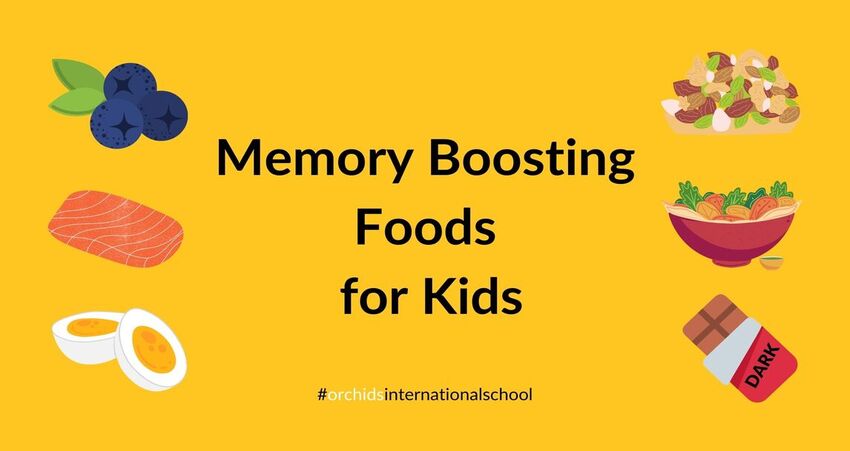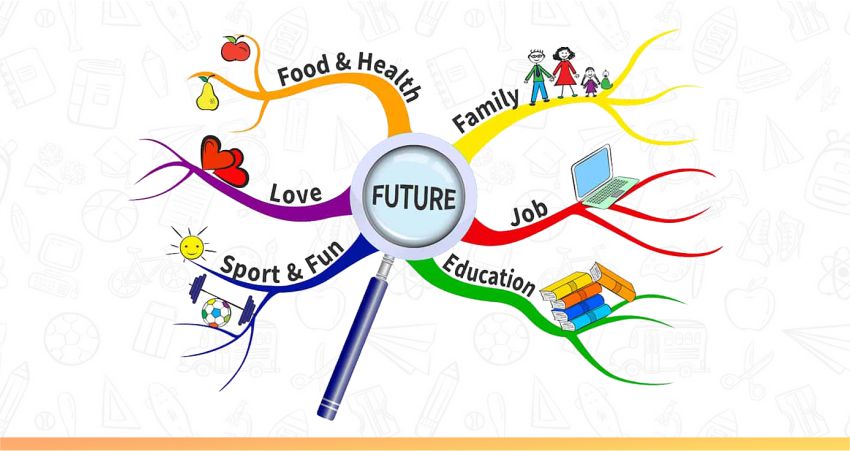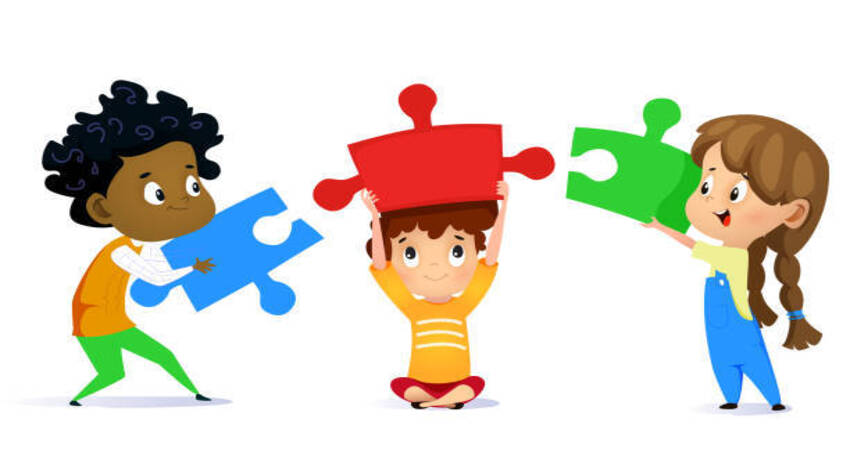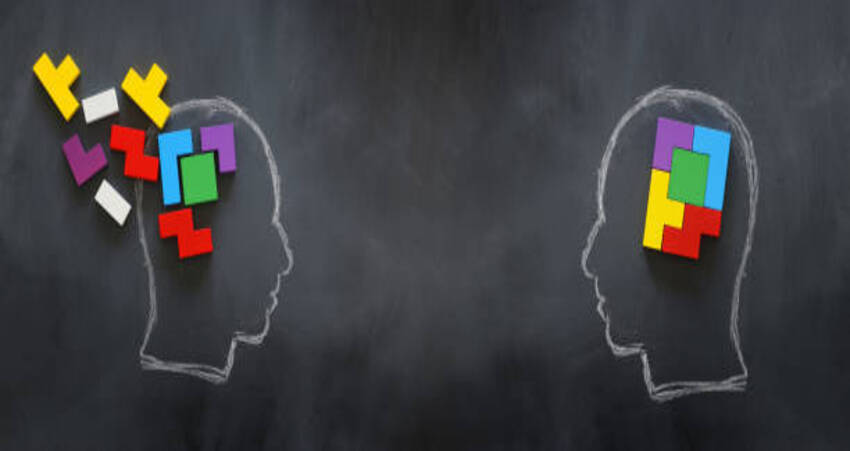Sharpen Your Child's Memory the Right Way!
By orchidadmin |
Date 05-09-2023

Table of Contents
Admissions Open for
Slow Memory in a Fast-paced World
As parents, it’s concerning to see your child getting distracted easily and unable to pay steady attention. Living in this increasingly dynamic world, with advertisements and technology growing and evolving every day, attention is a primary concern. Thankfully, the brain is a powerful organ that forms new neural connections (connections between neurons) every time you memorize something, develop a new habit, or learn a new skill. With consistency and good practice, you can train your brain to augment its abilities, including memory and concentration.
Did you know, at birth, your child’s brain consists of nearly 100 billion neurons? That’s how many stars are there in the Milky Way! In the first few years, kids grow more than billions of neural synapses. Forming a new memory requires rerouting nerve fibers and altering synapses. But here’s the catch: With brain wire, the rule of thumb is to use it or lose it. When you don’t bind the synapses together via stimulation, they’re snipped and lost.
Yes, a child’s brain has certain neurological hardwiring like the capability to learn languages, but it’s more pliable than adult brains. This, along with the fact that a toddler’s brain has two times the number of neural connections as an adult, makes early learning of memory skills crucial. When you play memory games and provide other enriching experiences, you allow neural connections to become wired together. In turn, this will enhance planning, reasoning, analytical, and a host of other skills.
How to Improve Memory of my Child?
Here are 6 exclusive tips that will improve your little one’s memory easily!
1. Eat right
Did you know the brain is a very hungry organ? It’s one of the first organs in the body to absorb nutrition from the food you eat. Like the body, the brain develops rapidly during childhood and requires ample nourishment to exploit that growth.

If you want to improve the functioning of the brain, you have to give it the right nutrition. The best menu for your baby’s diet should comprise foods that fuel the brain like green leafy vegetables, fruits, omega-3 fatty acids, flavonoids, nuts, eggs, and other foods rich in antioxidants, vitamins, complex carbohydrates, and phytonutrients.
Sweet treats now and then are fine but try to avoid saturated fats, artificial sugars, white sugar, etc., and substitute them with healthy alternatives to help your child’s brain blossom.
2. Build a mind map
Ben Pridmore, former world memory champion, can memorize and recollect 364 playing cards in just 10 minutes! Similarly, back in the 1700s, when Mozart was around 14, he could write a half-hour-long piece of music just from his memory.
It’s assumable to think that such people have extraordinary brains, but in reality, such brains do not differ from others. Memory is more of a skill that you can improve rather than an innate human capability. All you need is practice. That’s how they can remember so much.

One of the best ways to boost your memory skills is through mind mapping- one of the best memory games ever. Mind mapping is a technique to make associations and visually organize information. The information instantly becomes more memorable because mental triggers like connections, colors, and pictures help your brain memorize things easily.
Mind maps can also help kids at a later stage with note-taking, develop a higher level of understanding, actively engage with the material, and form a deeper understanding of concepts with the help of connections.
It’s a simpler and fun way to do schoolwork while boosting memory.
3. Visualize everything
Visualization is an excellent technique to remember things. It’s the first step to building a mind map.
You can use this method to teach your child basic concepts like addition. Ask your little one to draw two cars or any item of their liking and tell you how many there are in total. This helps them envisage theoretical concepts that they learn. Immediately, the whole process is more practical, making it easier to understand concepts. For instance, prompt your child to convert historical events into a movie to help them remember it better.
Visualization is one of the various ways of remembering information, and employing it improves working memory. Working memory is an active process of keeping in mind anything you need to keep in mind while doing something. For example, recalling directions while walking or using grammar when you write.
If you want your child to help in the kitchen, ask them to visualize the process. First, wash the vegetables, then put utensils away, and lastly, lay the table. This works better because images are more powerful than words.
4. Play memory games
Just like muscles, memory skills get stronger with use; you have to train it to get good at it.

Between the ages of 6-14, a child’s brain works overtime to build new pathways, remember new experiences, and learn new emotions. It’s the best time for them to learn whatever they can.
Different memory games will invigorate your child’s memory and help your kids boost their brain muscles. Whether it’s concentration games or matching games, it’s a way to enhance their skills with practice every day while having a bit of fun.
Memory games help kids learn new strategies, teach them concentration, improve their reflexes, and force them to think. Use such games to boost different aspects of your child’s development as well as pass long waiting hours at the doctor.
5. Leave the stress out of learning
For kids, learning can be exasperating because they find it stressful, feel the need to excel in academics, outshine their peers, and failure is unacceptable. Do away with this notion and make them feel that learning is an exciting, fun, and interesting ritual. Incorporate this train of thought, and you’ll see an automatic turn of events.
Tip: Use rewards, picture games, or flashcards to make the process of learning gratifying.
Understand your child’s learning style and employ tools accordingly to make learning a fun endeavor.
6. Break down information into smaller chunks
Adults find large bits of information challenging to grasp and remember. So, how can you expect little kids to remember a lot of information?
To help children retain large chunks of information, break it down into smaller pieces. For example, breakdown phone numbers into three, so it’s easier to memorize.

As seen above, this is applicable not just for studying or tests but in daily life as well. This tip will help your little ones remember what they are taking in effortlessly.
Memory is All About Creating Patterns
The brain is a pattern and puzzle seeking an organ that creates a repository of information. When your child forms connections between old and new knowledge that’s stored in the brain, they increase the power of their memory by two or threefold.
With all that being said, keep in mind that every child learns differently. It’s important to teach children in a way they will learn and absorb information.
Use techniques and tools which ensure your child learns healthily. A good combination of all factors will ensure a happy and robust memory.
Tip: Take a multisensory approach. Say you’re teaching kids about apples. You don’t have to stick to reading about apples. Your child can smell, taste, and touch the fruit. When you give your kid the chance to process information through movement, touch, sound, and sight, they can achieve better memory retention.
Also Read...
How Does Choosing A School Impact Your Child’s Future Career Opportunities?
Family Sports Activities to Enjoy This Summer!
Top 10 Interesting and Fun Online Kids Games to Play Over Zoom
Outdoor Games and It’s Benefits for Kids
Other Related Sections
NCERT Solutions | Sample Papers | CBSE SYLLABUS| Calculators | Converters | Stories For Kids | Poems for Kids| Learning Concepts | Practice Worksheets | Formulas | Blogs | Parent Resource
CBSE Schools In Popular Cities
- CBSE Schools in Bangalore
- CBSE Schools in Mumbai
- CBSE Schools in Pune
- CBSE Schools in Hyderabad
- CBSE Schools in Chennai
- CBSE Schools in Gurgaon
- CBSE Schools in Kolkata
- CBSE Schools in Indore
- CBSE Schools in Sonipat
- CBSE Schools in Delhi
- CBSE Schools in Rohtak
- CBSE Schools in Bhopal
- CBSE Schools in Aurangabad
- CBSE Schools in Jabalpur
- CBSE Schools in Jaipur
- CBSE Schools in Jodhpur
- CBSE Schools in Nagpur
- CBSE Schools in Ahmednagar
- CBSE School In Tumkur

Call Us to know more about Orchids
Swipe Up

.jpg&w=1920&q=80)














